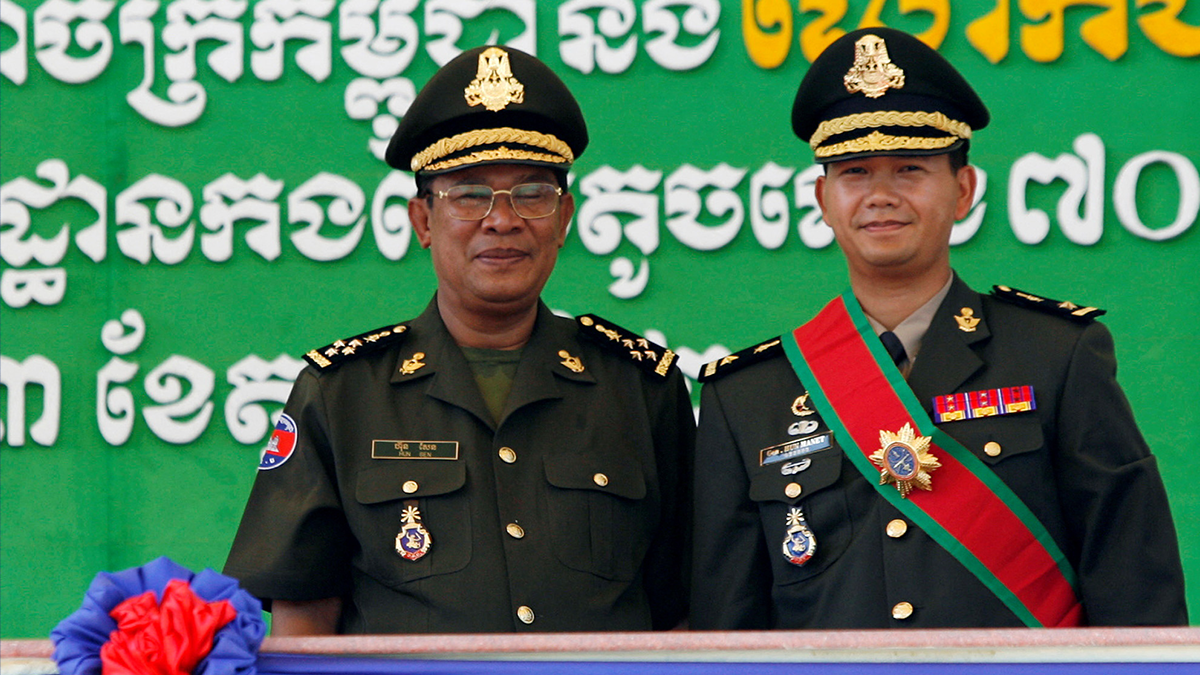On Sunday, Cambodia will hold a parliamentary election. It'll be anything but free and fair.
The ruling party controls all 125 seats in parliament. Opposition parties are banned. Political dissidents are silent, fearful that speaking out against the government might be followed by an unfortunate road accident — Cambodia's answer to Russians falling out of windows under Vladimir Putin.
What makes this “election” special is that it should be the last one for Hun Sen, the Southeast Asian country's eternal dictator, ahem, prime minister.
Hun Sen — who is always referred to by his full name — has been calling all the shots in Cambodia in various capacities since 1985. Asia's longest-serving leader came to power when his country was still recovering from the trauma of the Khmer Rouge regime, which exterminated a quarter of the population in the mid-1970s.
But after almost 40 years in charge, the septuagenarian says that after the vote he’ll hand over the reins to his son: Hun Manet.
Cambodia’s next PM, 45, currently serves as the country’s army chief. After getting a UK and US education — including a stint at West Point — he made a name for himself by negotiating peace with neighboring Thailand when the two countries almost went to war over a disputed border temple in 2011. Since then, his dad has been grooming him to be his successor.
Dynastic succession is fairly common in Southeast Asia, where name recognition is often the only game in town and political dynasties can rule their fiefdoms for decades. Indonesia, Malaysia, Myanmar, the Philippines, and Singapore have all had second-generation leaders.
Still, Cambodia will be the first nation in which the post goes directly from father to son — like the Kims in North Korea. And no matter how weak the opposition and how well-planned his succession has been, it won't be smooth sailing for Hun Manet.
For one thing, he will inherit a highly personalized patronage system in which the immensely wealthy elite often have competing interests. No one knows if a princeling barely tested in political battles will have Hun Sen’s chops to keep rifts at bay within the ruling party.
(Fun fact: Hun Sen recently quit Facebook after Meta threatened to ban him for sharing violent content, and Hun Manet now has the most Facebook friends in the country.)
For another, GDP growth has been lagging. Cambodia's economy is too reliant on its low-cost labor force and the tourism industry, hit hard by COVID. Also, Hun Sen's authoritarian vibes have turned Cambodia into a pariah state for the West, limiting its ability to trade with the EU and the US despite his recent efforts to patch things up with Brussels and Washington.
One country that wants everything to go without a hitch is China. Cambodia is Beijing's closest friend in the region, often to the dismay of other members of the Association of Southeast Asian Nations. Cambodia has sided with China in ASEAN squabbles over the South China Sea and hosts a not-so-secret Chinese naval base.
When he takes charge, Xi Jinping hopes that strongson Hun Manet will be as reliably pro-China as his strongman dad. If he is, Xi will have his back.
